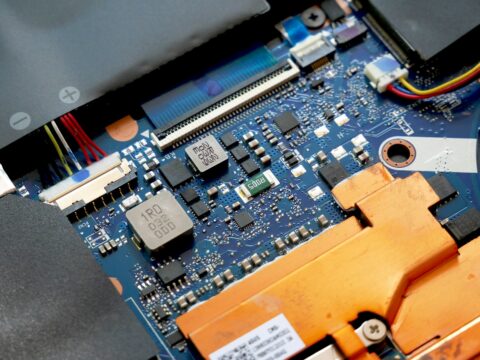Judicial Rationale in Sharad Singh v. H. D. Narang: A Significant Refinement in Compensation for a Paraplegic Victim

Introduction
The Supreme Court of India, in its judgment in Civil Appeal No. 8136 of 2024, delivered on September 26, 2025, significantly enhanced the compensation awarded to the legal representative (LR) of the deceased victim, Sharad Singh. This judgment is a significant refinement in motor accident compensation jurisprudence, particularly on the treatment of students with demonstrated academic potential. Authored by Justice K. Vinod Chandran, with Justice N.V. Anjaria concurring, the ruling provides a crucial analysis of income determination and grants substantial relief for medical expenses, setting an important precedent in motor accident claims.
Table of Contents
The Accident and Victim Background
The victim, a young man of 20 years, was travelling pillion when a car, driven negligently and rashly by its owner (R1), struck the bike from behind. The impact caused him to fall and be run over, resulting in a fracture of C4-5 and rendering him immobile with paraplegia and 100% disability (as certified by AIIMS). At the time of the accident in 2001, the claimant was a final year B. Com student and was also enrolled with the Institute of Chartered Accountants of India. He remained completely bedridden from 2001 until his death in 2021. His mother, as the LR, pursued the appeal against the High Court’s quantum of award, specifically challenging the income determination and the allowance for future medical expenses.
Scrutiny of Medical Expenses and Verification
The Insurance Company contested the medical bills, arguing that many were incurred before the High Court’s appeal disposal and that bills from hospitals in Goa and Bengaluru, while the victim resided in Delhi, made verification challenging. The Supreme Court decisively dismissed this contention. The Court reinforced the principle that the respondent-company, having offices all over India, could not reasonably raise such an objection. Furthermore, the Court accepted the appellant’s explanation that the victim, being paraplegic and suffering from pneumonia, had to be shifted to Goa due to the adverse climatic conditions in Delhi, which would have aggravated his affliction.
The Insurance Company verified and admitted that bills amounting to Rs. 21 lakhs were genuine. Considering the High Court had already granted an additional Rs. 1 lakh towards medical expenses, the Supreme Court ordered the payment of Rs. 20 lakhs to the appellant for the expenses incurred in sustaining the life of her son for 20 years.
Enhanced Determination of Loss of Income
A core jurisprudential tension in this case involved the lower courts’ reliance on minimum wages, which the Supreme Court found unconvincing. The Tribunal had adopted Rs. 3,339/- per month, and the High Court had adopted Rs. 3,352/- per month, both referencing minimum wages for a workman or a skilled worker in 2001. The Court rejected the use of minimum wages, stating that it was not convinced this could be adopted for a graduate who was in the process of sitting for the Chartered Accountant examination, which would have offered immense prospects.
This approach broadens the scope of notional income assessment, sitting alongside earlier rulings like M. R. Krishna Murthi v. New India Assurance Co. Ltd. (2019), where the Court similarly adjusted the notional income of a student victim based on future potential, not just minimum wages. Applying a reasonable estimate, the Court held that even without the CA certificate, the victim could have been employed as an Accountant, reasonably earning a notional monthly income of Rs. 5,000/- in the year 2001. In line with the Constitution Bench decision in National Insurance Company Limited vs. Pranay Sethi and Others, the Court computed 40% as future prospects on the determined income. Utilizing the correct multiplier of 18, the total loss of income for the 100% disabled paraplegic was calculated as:
Rs. 15,12,000/−(Rs.5,000/−×140%×12×18)
Total Compensation and Final Directives
The final total award was significantly enhanced to Rs. 40,34,356/-
The components of the enhanced award are as follows:
- Loss of Income (Enhanced): Rs. 15,12,000/-
- Conventional Heads (High Court Award): Rs. 14,00,000/- (Including attendant charges, loss of amenities, pain and suffering, loss of marriage prospects, and disfigurement)
- Medical Expenses (High Court Award): Rs. 11,22,356/-
- Grand Total: Rs. 40,34,356/-
Judicial Holding
The Court issued clear directives regarding interest and payment, allowing the Civil Appeal with these modifications:
- The total award of Rs. 40,34,356/- carries an interest of 9% per annum from the filing of the petition till realization, to be paid within four months.
- An additional Rs. 20 lakhs was awarded for future medical expenses.
- This additional Rs. 20 lakhs shall not carry interest if paid within four months, but will otherwise carry interest at 9% from the date of the judgment.
Conclusion
The judgment in Sharad Singh is a significant step in awarding just compensation. The Supreme Court decisively moved beyond the restrictive minimum wages framework, acknowledging that a student’s aspirations and career track, even if not fully realized, must be factored into income assessment for compensation.
In the opinion of the Court (K. Vinod Chandran, J. and N.V. Anjaria, J.), the application of the Rs. 5,000/- notional income and the subsequent application of future prospects under
Pranay Sethi effectively addressed the shattering of the young man’s aspirations. Furthermore, the clear directive on paying substantial amounts for past medical care, including those incurred outside the hometown due to medical necessity, reinforces the principle that the insurance company cannot evade liability on flimsy verification grounds when a life-saving relocation is involved. This verdict serves as a robust shield for accident victims, ensuring they receive equitable compensation reflecting their potential and the extensive costs of life-sustaining care.
For more details, write to us at: contact@indialaw.in
By entering the email address you agree to our Privacy Policy.



